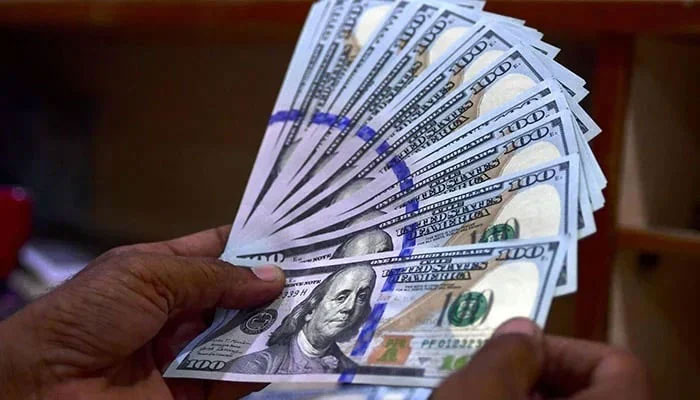Reckless borrowing
Pakistan has 50-year record of growing foreign debt faster than its ability to generate foreign revenue
I am writing in the hope that this message will reach both government and IMF officials responsible for approving the further loan package for Pakistan.
I have witnessed countless discussions by TV anchors and newspaper articles and can only surmise that opinion leaders and decision-makers are not educated enough to understand the dire consequences of our headlong chase for short-term foreign currency liquidity, for the nation.
This is really a technical subject. Hence, I am reluctantly penning my thoughts even though we seem pregnant with repeating our past mistakes.
It is inexplicable that the government is considering piling additional foreign loans on the people of Pakistan when the country demonstrably does not have the capacity to pay back existing loans.
Pakistan has at least a 50-year track record of growing its foreign debt at a pace that grossly outpaces the country’s ability to generate foreign revenue. Past debt repayments have been repaid by incremental foreign loans. Much of these loan proceeds have been frittered away in irresponsible short-term consumption without generating proportionate foreign revenue-earning capacity.
Compounding this quagmire is our misplaced aspiration to attract foreign equity into businesses that will not generate foreign revenue and will trigger additional foreign outlay to meet the operational needs of such projects and to repatriate future profits at a cost at least five to eight times the cost of foreign debt.
There appears to be no sensitivity to the resulting cannibalizing of the consumption capacity, higher tax costs and spiralling inflation for the future children of this country.
Pakistan by any metric is already insolvent. If the IMF is serious about not writing off its loans to Pakistan it too should stall new loans and closely supervise the structural changes that are required in the economy to pay back its existing debt in a reasonable timeframe.
It is not in a well-wisher’s long-term interest to initiate political instability in a nation of 243 million people through the disbursement of funds to a government that is sustained by dystopian conditions.
New IMF lending signals optimism to international lending and the investor community, which is completely false and misplaced. The resulting incremental loans and equity will only further the dystopia and erode its sovereignty.
In further lending to Pakistan, is the IMF cognizant it is making a bad loan? In any court, such a loan would be viewed as irresponsible and hence irrecoverable and indeed its tacit signal of optimism (like a rating agency) can be viewed as fraud by private banks and foreign investors which place great significance on this signal to further lend to or invest in Pakistan.
None of the political parties has the confidence to admit the gravity of our quagmire and force the urgency and discipline of corrective measures. This will only happen if external creditors stop indulging in our indiscipline.
Speaking for the nation as a seasoned international banker, I urge both the government and the IMF to set aside political short-termism, look pragmatically at our situation, and let us bite the bullet of bankruptcy earlier, and take measures that we find politically unappealing to discipline ourselves with immediate effect.
We need to first rationalize our spending to fit within our existing income and deliver a diversified export revenue vision. At this juncture, stalling further foreign loans and non-exports generating FDI will be a greater service to the future generations of Pakistan.
The writer is the former president of United Bank Limited (UBL).
-
 Cuba-Canada Travel Advisory Raises Concerns As Visitor Numbers Decline
Cuba-Canada Travel Advisory Raises Concerns As Visitor Numbers Decline -
 Anthropic Buys 'Super Bowl' Ads To Slam OpenAI’s ChatGPT Ad Strategy
Anthropic Buys 'Super Bowl' Ads To Slam OpenAI’s ChatGPT Ad Strategy -
 Prevent Cancer With These Simple Lifestyle Changes
Prevent Cancer With These Simple Lifestyle Changes -
 Air Canada Flight Diverted St John's With 368 Passengers After Onboard Incident
Air Canada Flight Diverted St John's With 368 Passengers After Onboard Incident -
 Experts Reveal Keto Diet As Key To Treating Depression
Experts Reveal Keto Diet As Key To Treating Depression -
 Inter Miami Vs Barcelona SC Recap As Messi Shines With Goal And Assist
Inter Miami Vs Barcelona SC Recap As Messi Shines With Goal And Assist -
 David Beckham Pays Tribute To Estranged Son Brooklyn Amid Ongoing Family Rift
David Beckham Pays Tribute To Estranged Son Brooklyn Amid Ongoing Family Rift -
 Jailton Almeida Speaks Out After UFC Controversy And Short Notice Fight Booking
Jailton Almeida Speaks Out After UFC Controversy And Short Notice Fight Booking -
 Extreme Cold Warning Issued As Blizzard Hits Southern Ontario Including Toronto
Extreme Cold Warning Issued As Blizzard Hits Southern Ontario Including Toronto -
 Lana Del Rey Announces New Single Co-written With Husband Jeremy Dufrene
Lana Del Rey Announces New Single Co-written With Husband Jeremy Dufrene -
 Ukraine-Russia Talks Heat Up As Zelenskyy Warns Of US Pressure Before Elections
Ukraine-Russia Talks Heat Up As Zelenskyy Warns Of US Pressure Before Elections -
 Lil Nas X Spotted Buying Used Refrigerator After Backlash Over Nude Public Meltdown
Lil Nas X Spotted Buying Used Refrigerator After Backlash Over Nude Public Meltdown -
 Caleb McLaughlin Shares His Resume For This Major Role
Caleb McLaughlin Shares His Resume For This Major Role -
 King Charles Carries With ‘dignity’ As Andrew Lets Down
King Charles Carries With ‘dignity’ As Andrew Lets Down -
 Brooklyn Beckham Covers Up More Tattoos Linked To His Family Amid Rift
Brooklyn Beckham Covers Up More Tattoos Linked To His Family Amid Rift -
 Shamed Andrew Agreed To ‘go Quietly’ If King Protects Daughters
Shamed Andrew Agreed To ‘go Quietly’ If King Protects Daughters




